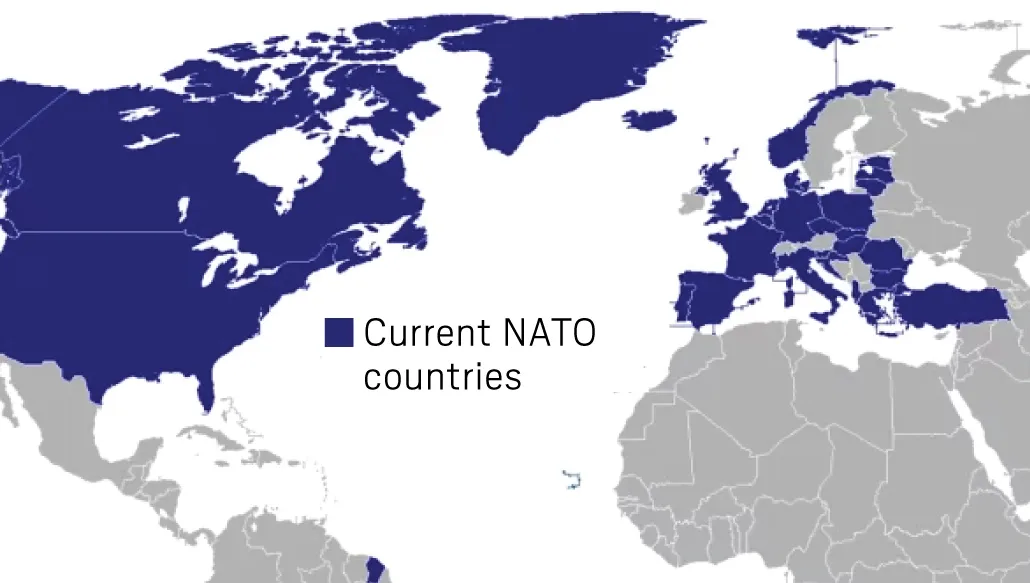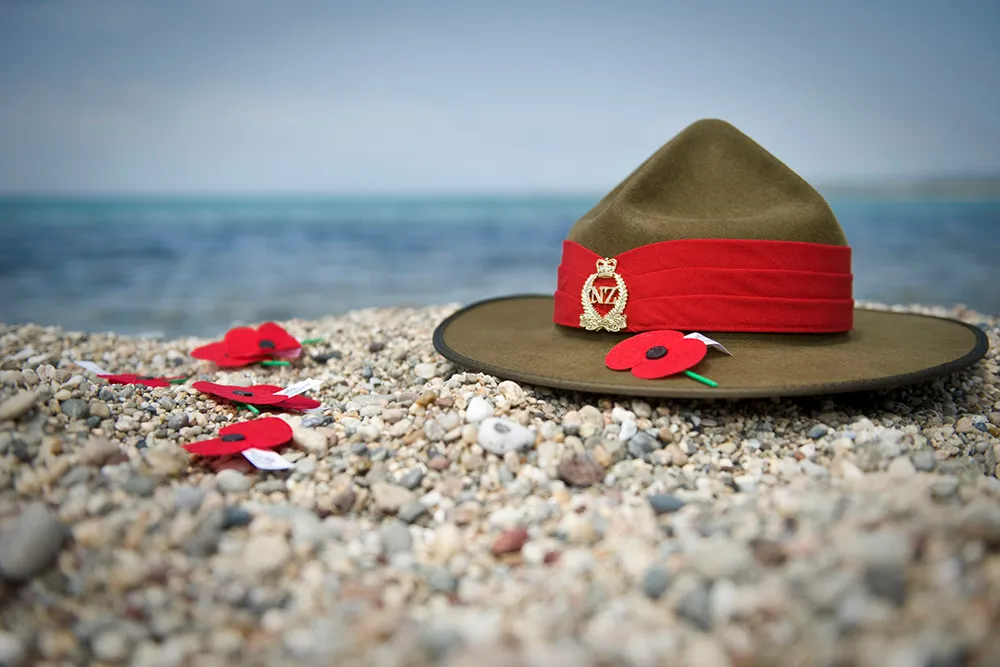Table of Contents
BICOM
BICOM provides accurate, timely and balanced information that is read by officials, experts, journalists and many others.
Three hostages killed: IDF Chief of Staff Halevi visited troops inside Gaza and reflected on Friday’s incident where troops shot and killed three Israel hostages who managed to escape their captives.
- The three hostages had stripped to their waist to prove they did not have an explosive belt and carried an improvised white flag (a white cloth on a poll). They came out speaking Hebrew and asking for help.
- Two were shot by an IDF sniper, while the third was killed after he ran back inside a building.
- Since the incident, it also became apparent they had made a banner and written, “three hostages, help” in Hebrew as well as other signs.
- Halevi told the troops, “you see two people, they are with hands up and without shirts, take two seconds, and I want to tell you something just as important, and if it’s two Gazans with a white flag coming out to surrender why would we shoot at them? Absolutely not. Absolutely not. That’s not the IDF.”
- “I’m telling you whoever got confused here, even those who fought and now lay down their arms and raise their hands, we arrest them, we don’t shoot them. We get a lot of intelligence from the captives we have, we already have over a thousand. We don’t shoot them because the IDF doesn’t shoot a person who raises their hands. That’s strength, not weakness.”
Largest tunnel exposed: The IDF exposed a Hamas tunnel system with its exit point in close vicinity (400 metres) of the Erez crossing, at the northern tip of the Strip.
- According to the IDF, “this massive tunnel system, splits into branches of tunnels, spans well over four kilometres,” and reached 50 metres underground.
- The IDF described this tunnel as a “strategic attack tunnel network,” noting it was “large enough to drive vehicles through, was spearheaded by Muhammad Sinwar (the brother of Hamas leader) and intentionally dug near a crossing dedicated to the movement of Gazans into Israel for work and medical care.”
- Overall, the IDF has already exposed hundreds of tunnel shafts, but this one was significantly wider and more sophisticated than most. As with other tunnels, the IDF noted it was, “equipped with electricity, ventilation, sewage, communication networks and rails.”
- Many of the tunnels were deliberately built under hospitals, mosques, schools, and kindergartens. This largely explains the significant damage caused during Israel’s operations, particularly in northern Gaza, due to the need to destroy this underground network.
- It also speaks to the enormous investment, both financial and resources, that Hamas placed on this project though many years, with the sole objective of attacking Israel.
- Prior to the war, the Erez Crossing was the main crossing for Gazan civilians to enter Israel for work and to receive treatment in Israeli hospitals. According to the IDF, “in 2022, over 800,000 Gazans crossed via Erez Crossing; in the first half of 2023, 550,000.”
Fighting continues: The IDF continues its campaign fighting in both northern and southern Gaza.
- Over the weekend, troops continued to target Hamas fighters, including the latest example of Hamas combatants hiding in schools and hospitals.
- For example, in the Kamal Adwan hospital in Jabalya, around 80 fighters were arrested, some of whom terrorists who took part in the October 7th massacre. In addition, according to the IDF, “troops destroyed terror infrastructure in the area and located numerous weapons including AK-47s, RPGs, explosive devices, Nukhba military equipment, technological equipment, and Hamas intelligence documents.”
- They also questioned the hospital workers. “The workers confessed that weapons were hidden in incubators in the NICU, incubators that were supposed to be used to treat premature babies. Following the questioning, IDF troops located weapons, classified documents, and tactical communications equipment.”
- In the south, IDF forces in Khan Yunis “eliminated numerous terrorists, located approximately 30 tunnel shafts, and destroyed numerous anti-tank and lookout posts in the area. They also confiscated grenades and RPGs, and found intelligence materials including phones, computers and Hamas guidebooks.”
- Overall, the cost in terms of soldiers’ lives continues to rise, with three more soldiers’ deaths announced this morning, taking those killed since the ground incursion to 126.
Hostages: Despite numerous examples of tactical successes, the overall objectives of destroying Hamas and returning the remaining 129 hostages appear far from completion.
- On Friday, the head of the Mossad met with the Qatari prime minister to revisit the possibility of another hostage deal.
- At present, Israel is insisting that the first component includes the female captives that were supposed to be released as part of the first agreement.
- After that, Israel is keen to see the release of wounded and elderly men, and there is speculation that Israel would be willing to be “more generous” when it come to releasing Palestinian security prisoners.
- The head of Mossad is expected to travel to Europe later this week and again meet with Qatari prime minister to explore a new deal with Hamas.
Northern front: Hezbollah has kept up a persistent level of attacks across the length of the Israel-Lebanon border.
- Alarms were sounded across northern Israel throughout the weekend. This morning six rockets landed in uninhabited areas.
- Overall, hundreds of rockets and missiles have been fired from Lebanon. However, according to the IDF around 20 per cent of their rockets have landed inside Lebanon.
- The IDF also claims overall to have struck 120 terrorist cells firing or preparing to launch attacks from southern Lebanon.
- Syrian sources claimed that overnight Israeli air strikes targeted Hezbollah military sites inside Syria along with Syrian army air defence batteries.
BICOM published a comprehensive background briefing on Operation Swords of Iron, including background on Hamas, Israeli policy on Gaza, and Israel’s obligations under international law. Read the full briefing here
PODCAST
Episode 223 | The Military and Diplomatic Timetables
In this episode, Richard Pater speaks to Shalom Lipner. Two months into the war, they discuss the military campaigns in the south and the north as well as the diplomatic front and Israel–US relations. They also speculate on the day after for the Palestinians and inside Israel. Shalom Lipner is a nonresident senior fellow for Middle East Programs at the Atlantic Council, and a former veteran of the Prime Minister’s Office in Jerusalem, serving seven consecutive Israeli prime ministers over 25 years.
Listen on Apple Podcasts, Spotify and Google Podcasts
ARTICLE
The ‘Ben Gurion Canal’: A new crazy anti-Israeli conspiracy theory is doing great business on the internet while the social media platforms do nothing
Top stories from the UK and Israeli media
The Guardian, The Times, The Financial Times, The BBC,and The Independentall feature UK Foreign Secretary David Cameron and his German counterpart Annalena Baerbock calling for a “sustainable ceasefire” in the Gaza Strip. Writing in The Times¸ they say “We know many in the region and beyond have been calling for an immediate ceasefire. We recognise what motivates these heartfelt calls. It is an understandable reaction to such intense suffering, and we share the view that this conflict cannot drag on and on. That is why we supported the recent humanitarian pauses.”
The two are clear that such an immediate ceasefire, however, is not the way forward. It would “ignore why Israel is forced to defend itself: Hamas barbarically attacked Israel and still fires rockets to kill Israeli citizens every day. Hamas must lay down its arms.” Backing eventual moves towards a two state solution, they write that “Leaving Hamas in power in Gaza would be a permanent roadblock on the path…” While backing Israel’s continued fight, then, they say that “too many civilians have been killed. The Israeli government should do more to discriminate sufficiently between terrorists and civilians, ensuring its campaign targets Hamas leaders and operatives. Second, we must get more aid to ordinary Palestinians. It breaks our hearts to see children in the rubble of their destroyed homes, not knowing where to find food or water, not knowing where their parents are. We have both, therefore, increased our funding for humanitarian aid to Gaza, getting life-saving supplies to those in desperate need. And we are both committed to doing more. We welcome Israel reopening the Kerem Shalom crossing. We need unhindered deliveries into Gaza directly via as many crossing points as possible, so that much greater volumes of aid start flowing.”
As The BBC reports, the two foreign ministers’ call for a later ceasefire is in contrast to France’s demand for an “immediate and durable truce”, made over the weekend. Foreign Minister Catherine Colonna arrived in Tel Aviv yesterday for a meeting with Israeli counterpart Eli Cohen.
The BBC features news that the Liberal Democrat frontbencher Layla Moran’s family are among hundreds of civilians trapped in a Catholic Church in Gaza City as Israeli forces operate nearby. Moran says they are”days away from dying” if food and water are not provided.
The Telegraph and The BBC report former UK Defence Secretary Ben Wallace offering strong criticism of Israel’s tactics in Gaza. “If [Benjamin Netanyahu] thinks a killing rage will rectify the matter, then he is very wrong,” he said. “His methods will not solve this problem. In fact, I believe his tactics will fuel the conflict for another 50 years. His actions are radicalising Muslim youth across the globe.”
The BBC reports that the three Israeli hostages killed by the IDF last week made SOS signs using leftover food. “The Israeli hostages – Yotam Haim, 28, Samer Talalka, 22, and Alon Shamriz, 26 – were killed in the Shejaiya neighbourhood of Gaza City on Friday as Israeli troops face stiff resistance.” The Sun adds that, as a result, protests have erupted in Tel Aviv, which are led by the families of the hostages that have been killed.
The Guardian, The Financial Times, and Sky News report that Israeli forces battling Hamas claim to have uncovered the largest Hamas tunnel found in Gaza, designed to carry carloads of Hamas fighters up to the border with Israel.
The Guardian publishes a piece by novelists Sally Rooney and Isabella Hammad who discuss pro-Palestinian “political resistance”.
The Guardian also reports that nearly 200,000 of the 700,000 Israeli settlers in the West Bank would have to be relocated to Israel to create a viable Palestinian state, according to an Israeli lawyer from whom the UK foreign secretary, Lord Cameron, has sought advice on his visits to Israel. Cameron has said he realises reaching a two-state solution would be tough, but he has not spelled out the practical consequences in terms of borders, including the need to persuade so many Israelis to relocate.
The Times reports that Israel’s military has drawn up plans to invade southern Lebanon, risking a further escalation in the war in the Middle East and in the face of calls for restraint from its western allies. The IDF says it wants to drive Hezbollah forces in the southern Lebanon north to the Litani River, a line of symbolic importance for both sides.
The Financial Times publishes an editorial piece on Benjamin Netanyahu:
“As long as the war continues, the prime minister is likely to be secure in his post, despite his falling popularity. Once it is over, there will surely be elections, or a renewal of protests against his leadership. Israelis deserve better than his divisive rule. Nothing will move forward while he is in office, with extremists sitting at the top table. A new government is unlikely to immediately change the dynamics in a traumatised nation. The October 7 tragedy has further undermined Israelis’ faith in peace. However improbable it appears today, the only secure future for Israel lies in a settlement with Palestinians. At its most anguished moment, Israel needs leaders who at least recognise that reality and are willing to make the case for a two-state solution. Netanyahu has never been such a leader.”
The Telegraph publishes its view on the current state of the war: “It is clear that we are rapidly approaching a pivotal moment in the current conflict. The path towards a sustainable outcome is narrow; it is vital that the collective West navigates it with care.”
The Economist publishes a piece on ‘dumb bombs’, saying: “laser-guided smart bombs first appeared in the Vietnam war and matured in the 1990s when America invented the joint direct attack munition (jdam), a gps-guidance kit that could be attached to ordinary dumb bombs. In the first Gulf war against Iraq in 1991, just 6% of American bombs were pgms. When it bombed Serbia in 1999 the rate had risen to 29%. By the Afghan war in 2001 it was 57%—around the same as Israel’s rate today—and 68% by the second Iraq war in 2003.”
The BBC reports that three men are being sought by police in connection with graffiti about the Israel-Gaza conflict which was sprayed on an MP’s constituency office. Shutters at Enfield North MP Feryal Clark’s office on Hertford Road were defaced at about 23:05 GMT on 21 November, the Met Police said. It has released images of three men it wants to speak to about the graffiti.
The Independent reports that a US teacher has been arrested after allegedly threatening to beat and behead a Muslim student who told him an Israeli flag in his classroom was offensive. Benjamin Reese, 51, a seventh grade teacher at Warner Robins Middle School in Georgia, was arrested earlier this month on charges of terroristic threats and cruelty to children, according to the Houston County Sheriff’s Office.
Israel Hayom’s Yoav Limor writes on IDF Chief of Staff Herzi Halevi’s visit to the Gaza Strip yesterday, where he discussed the rules of engagement with troops in the wake of the friendly fire killing of three Israeli hostages last Friday. “Halevi did the right thing yesterday to go to Gaza and to say what ought to be self-evident,” says Limor. He also notes the implications the tragic incident has on Israel’s hostage strategy. “Had the three been rescued alive,” he writes, “that would have corroborated the Israeli argument that the military pressure is creating conditions more conducive to the hostages’ release. Their deaths created the opposite sense: with every day that passes, the risk to their lives increases. Both arguments are equally valid, and it is legitimate for the war cabinet to prefer the aggressive path.”
Channel 12 News reports that Mossad Director David Barnea has presented to the political leadership several possible parameters for a new deal to free hostages and was given a “green light” to move ahead in talks with the mediators. Barnea had returned from discussions with Qatari Prime Minister in an unnamed European capital. “As far as is known about the renewed efforts to free the hostages, Israeli political officials have demanded that the mediators draft a proposal on the basis of Israeli guidelines. Israel has also insisted that the women who are being held hostage be released, and that the fighting will be resumed once the deal is completed. The deal is expected to expand the humanitarian category [of Israeli hostages] to elderly and ailing men… One of the stumbling blocks in the negotiations is creating levers of pressure that can be used against Yahya Sinwar, now that he has already been given humanitarian aid and fuel. An Israeli official said, ‘It’s going to be long and complicated, far more so than the last time, and it is going to take time. The wheels are only beginning to turn now. The side holding the bargaining chips is Hamas, and it needs to be made to understand that the Israeli blade is drawing near to its neck.’”
In Yediot Ahronot, Sever Plocker criticises those Israeli voices who have suggested that after the defeat of Hamas, Israel might reoccupy all or part of the Gaza Strip. Any moves to do so would “cause the State of Israel unspeakable damage,” he says. In part, the damage would be to Israel’s relationship with the moderate Arab world. “Most of the Muslim Arab countries have given us quiet support,” he says. “Not a single combat plane has taken off from a single military airport in a single Muslim country since the IAF first began to bomb the northern Gaza Strip, and more anti-Israel protests are held in London than in Cairo or Doha. This support, which has allowed the IDF to continue to prosecute its difficult war effort without a stopwatch, comes with a very clear global price tag. After Hamas is forced from the Gaza Strip and once its military capabilities have been crushed, the Gaza Strip needs to be reunited with the Palestinian Authority—though not under its current leadership—into a single political entity that will be under the tight supervision of an international and inter-Arab committee led by the United States and Saudi Arabia. Israel doesn’t have the option of turning Gaza into a separate ghetto, and it doesn’t have the option of ruling it as an occupying force. That is an illusion.”
In a similar vein, Ari Shavit, writing in Yediot Ahronot chides the Netanyahu government for its approach to the Biden Administration. “Biden saved Israel from historic catastrophe,” he writes. “He may have prevented the destruction of the third commonwealth. When Hamas’s forces of evil conquered the western Negev and murdered some 1,200 Israelis, the Jewish state was facing an immediate existential threat. Had Hezbollah launched a comprehensive assault in the first days after October 7, Israel’s national defences would have collapsed. Israel would have been hard put withstanding a multiple-theatre war in the course of which the Upper Galilee would have been conquered, IAF airbases would have been paralyzed and hundreds of buildings in Tel Aviv would have been in flames. The man who prevented that horrific scenario from playing out is the greatest Zionist of all, the man who serves in the Oval Office… He asked for just one thing in return,” Shavit continues:
“words. Good will. Statements by Israel saying that it seeks peace that would help him maintain the pro-Israel coalition in the US and in the international community. But Netanyahu said to him no. Honestly? He spat in his face. While the American airlift was saving the Israel Defense Forces, the Israeli prime minister treated the United States as if it were his handmaiden. He provoked Washington when he said that Israel would control Gaza after the war, and he directly hurt the White House when he attacked the Palestinian Authority. The prime minister of this disastrous government repeatedly bit the American hand that had just saved him and us from drowning.”
Maariv and Walla News report clashes at yesterday’s cabinet meeting over Israel’s decision to allow aid to the Gaza Strip to be transported through the Kerem Shalom crossing. The decision was made at the urging of the US, with Minister Ben Gvir saying “it’s unacceptable to suddenly change policy without holding a security cabinet discussion. We’ve had a large rise in the number of soldiers killed in action; we’ve had a large rise in the number of casualties. In my opinion, that is in absolute correlation to the quantity of fuel and humanitarian aid that has entered the Gaza Strip. But how can we be so irresponsible to decide to open the Kerem Shalom crossing without holding an in-depth and exhaustive security cabinet discussion? My position is clear and well-known: I have always been opposed to that, from the first moment, and I think that we shouldn’t be giving them humanitarian aid unless we get aid to our hostages.”
In response, Prime Minister Netanyahu said, “the Americans helped us get 80 hostages instead of 50 hostages in the deal. And our [payment in] return was to allow in 200 trucks a day. They can’t all go in via the Rafah crossing and that’s why, in order for us to be able to give our payback, we need to reopen the Kerem Shalom crossing.”
Haaretz’s Zvi Bar’el writes that “the spillover of the war in Gaza to the Red Sea, with the Houthis joining the war against Israel, has developed into a strategic regional threat which could become a separate war, independent of developments in Gaza. If earlier in the war the Houthis were regarded as marginal, eliciting tactical responses such as the interception of drones and missiles launched from Yemeni territory toward Eilat or at ships travelling along the Red Sea, within a short time there was no escaping the conclusion that for now, there is no fitting response to the Houthi threat. The presence of American destroyers and Israeli vessels in the Red Sea, as well as the dispatch of a French warship to the area, have not caused the Houthis to blink.”
Recommended Reading
Iran’s goal is to drag Israel into a larger conflict, Seth J Frantzman, The Jerusalem Post“The US’s role in the Middle East is declining, Islamic Revolutionary Guard Corps Commander Maj.-Gen. Hossein Salami said in a speech over the weekend. This statement is not new to the Iranian regime, but reiterating it adds new details linking how Tehran views the US role and Israel’s war against Hamas.” Read more
Israel must fight Gaza war to the end, Avi Issacharoff, Ynet“IDF Spokesperson Rear Adm. Daniel Hagari’s statement last week on the accidental shooting by IDF soldiers of three hostages who managed to escape from Hamas caused Israel’s now dwindling morale to waver even more. The sentiment also affected television studios and social media platforms, where questions were raised about the advisability of continuing the ground operation in Gaza and the need to expedite efforts for the immediate release of the hostages.”Read more
The Ground Operation Alone will not Achieve the War’s Goals: What Should Israel Do?, Ofer Shaleh, INSS“What was clear even before the ground operation in the Gaza Strip began must be stated explicitly once again: by itself, the manoeuvre will not achieve the war’s goals. Moreover, in the time frame that for various reasons has been designated – a few weeks at most – it is doubtful if the operation will yield even the sense of significant achievement, both in terms of defeating Hamas and in relation to the release of the hostages, whose tangible danger to their lives increases with each passing day.” Read more









